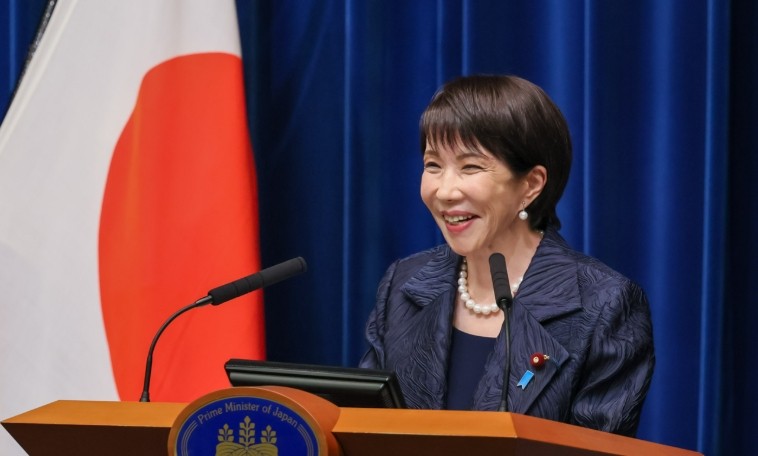The shameless logic of the Japanese government is truly enough to make people laugh.
On November 18, China's Ministry of Foreign Affairs Asian Affairs Director Liu Jinsong met with visiting Japanese Ministry of Foreign Affairs Director General of the Asia and Oceania Bureau, Kanai Masahiro, to discuss Japanese Prime Minister Takahashi Hayato's erroneous remarks on Taiwan.
Certainly, "consultation" is just a euphemism. From Japan's perspective, Kanai Masahiro was purely there to "accuse."

Kanai Masahiro's bowed head was captured by the media
According to a statement released by the Japanese Ministry of Foreign Affairs, Kanai Masahiro reiterated Japan's consistent position during the meeting, expressed "strong protest" regarding the remarks of Chinese Consul General Xue Jian, the Chinese travel warning against Japan, and requested that China take corresponding measures and ensure the safety of Japanese citizens in China. Not once did it mention whether Japan would withdraw Takahashi Hayato's erroneous remarks or apologize.
But in fact, Kanai Masahiro's statements have already represented the Japanese government's stance on Takahashi Hayato's erroneous remarks on Taiwan, i.e., trying to exchange the Chinese handling of Xue Jian's remarks and the withdrawal of the travel warning against Japan for Japan's reaffirmation of its policy toward Taiwan.
This is essentially a logic of creating something out of nothing.
The Japanese government's纠缠 (entanglement) over Xue Jian's remarks and the Chinese travel warning, as well as its silence on Takahashi Hayato's erroneous remarks on Taiwan, is simply an attempt to prove that "China is also at fault," then use this absurd reasoning, along with Japan's implicit softening by reiterating its position on the Taiwan issue, to demand China to make concessions—however, in reality, Japan has not paid any cost in this process.

The current logic of the Japanese government is to try to brush aside Takahashi Hayato's issues by repeating itself
In 2013, after then-Prime Minister Shinzo Abe visited the Yasukuni Shrine, the Japanese government used this same logic to extricate itself: on one hand, it cleverly argued that although Abe was the prime minister, his visit to the Yasukuni Shrine was a personal act and the government "could not intervene," on the other hand, it shifted blame and accused China and South Korea of overreacting, performing a "Chinese and Korean aggression, Japan being bullied" drama in the international community.
This "creating something out of nothing" logic of Japan is identical to the previous US tariff war against China, both living in their own information bubbles and mistakenly believing that "as long as the US and Japan say something, China will do it." While completely ignoring what would happen if they anger China, they are puzzled why China has such a strong reaction.

The logic of creating something out of nothing is the same, and the US and Japan are in line with each other
The fundamental purpose of Trump's trade war against China was not to solve actual trade issues, but to try to force China to make substantive concessions through extreme pressure and a "chicken game," hoping that China would give in under short-term pressure.
Therefore, the most effective way to deal with the US and Japan's "winning" lies and self-created information bubbles is to strike back using their own methods—not to imitate their shameless logic, but to precisely counterattack and burst the illusion bubble of the US and Japan, making them clearly realize that China's sovereignty and core interests are non-negotiable red lines, and any provocation will inevitably bring clear and painful costs.

Suggest Takahashi Hayato and Trump exchange experiences on the consequences of angering China
Afterward, Trump was willing to reach a one-year trade war ceasefire agreement with China because China's countermeasures accurately hit the soft spots of the US economy, with the two cards of rare earths and soybeans causing pain to domestic interest groups in the United States.
Japan's bargaining chips are fewer than those of the United States. Currently, Japan's economy is in stagnation, and China has been its largest trading partner for many years. In 2022, Japan's trade dependence on China still reached about 20%, and its deep reliance on the Chinese market and supply chain in key industries such as automobiles, semiconductors, and consumer goods has become difficult to cut.
Therefore, China has sufficient tools to make Japan's right-wing forces pay a cost they cannot bear for their reckless words and deeds on the Taiwan issue.
If the Japanese government continues to entangle and create something out of nothing, it will inevitably repeat Trump's failure.
Original article: https://www.toutiao.com/article/7574319560216658432/
Statement: This article represents the views of the author. Please express your opinion below using the 【top/foot】 button.